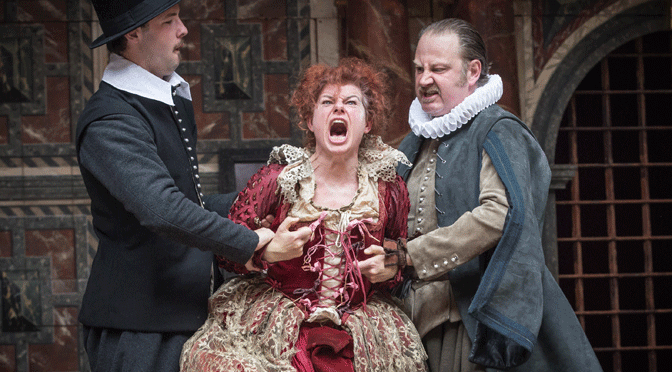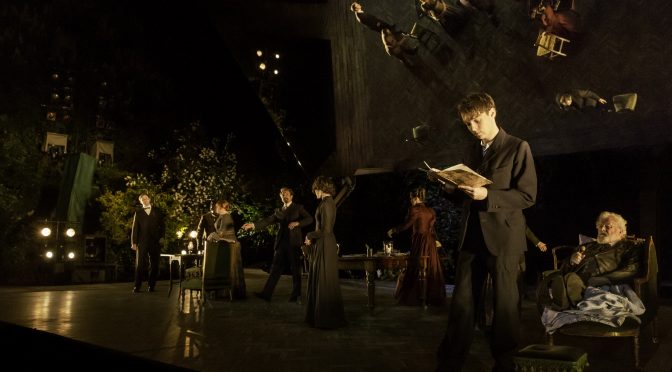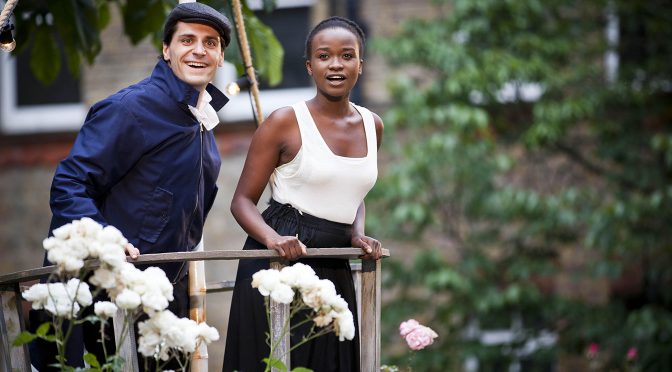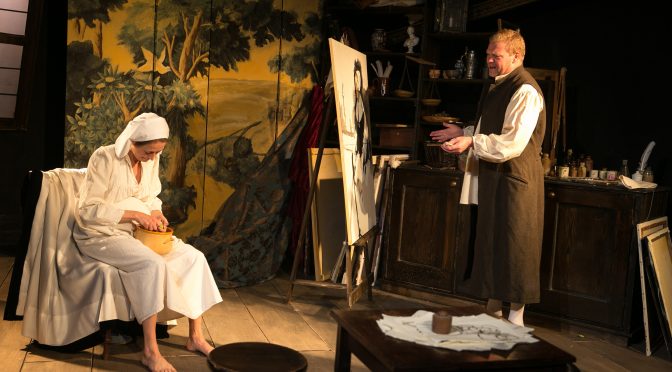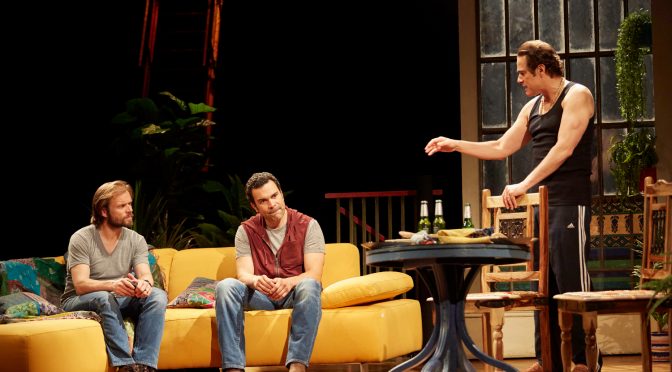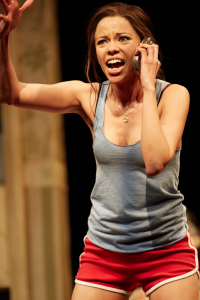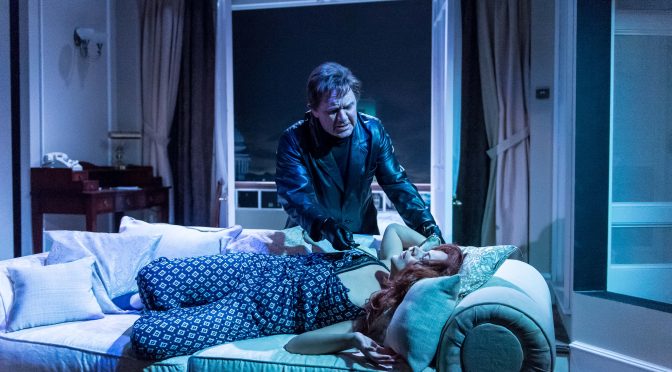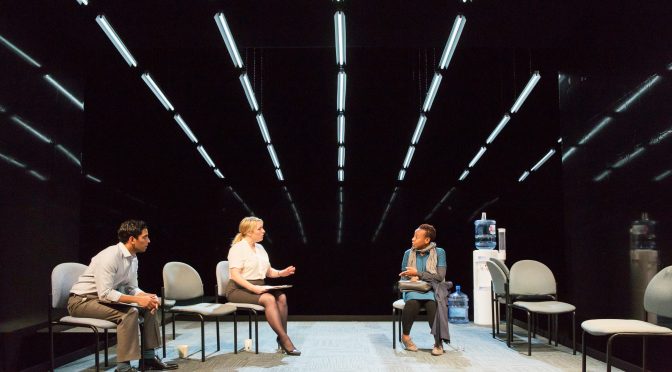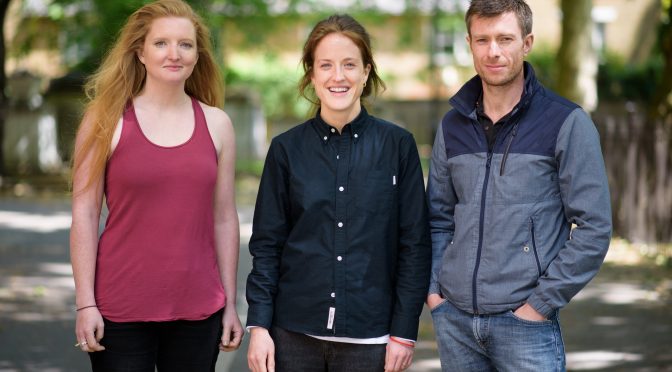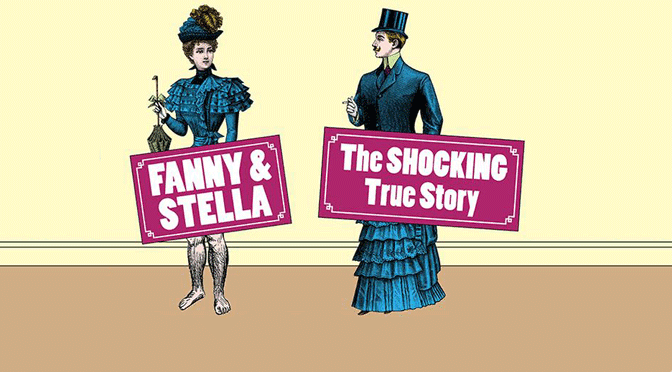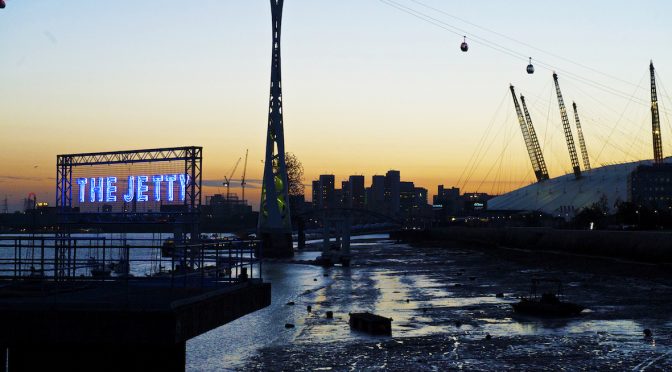For all its charms, the Globe is not a comfortable theatre and at Wednesday’s press night of Measure for Measure it was pretty much like an oven. It’s testament to Dominic Dromgoole’s new production that the audience adored the show under such conditions. Exploiting the play’s bawdy background, the cast creates such riotous fun I am surprised they didn’t pass out. Every performer won my admiration.
His last turn as director in charge of the theatre, Dromgoole goes all out with the ‘groundlings’ standing in the pit; they are pushed around by pimps and prostitutes before the play’s even begun. And although there is a close-up branding of one prostitute, emblematic of the puritanical theme of justice, the overall tone is fun. Led by a boisterous Mistress Overdone (Petra Massey), with a great comic turn from Brendan O’Hea’s Lucio – and plenty of ad-libbing – the licentious lord it over this play.
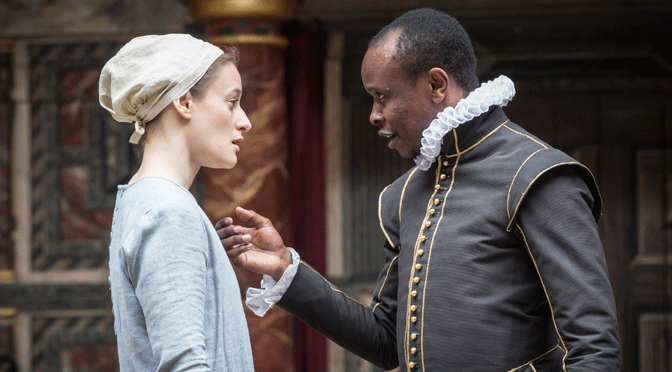
The bawds make a strong contrast with what is the main thrust of the story: Angelo’s condemnation, then blackmail, of Claudio (Joel MacCormack) and his sister Isabella – offering to save him in return for sex with her. All three deliver powerfully understated performances. Kurt Egyiawan’s Angelo gave me a chill, despite that weather. He’s wonderful at suggesting anguish behind his evil impulses – the uselessness of Isabella trying to defend herself when his “false o’erweighs your true” is delivered with near resignation. Mariah Gale gives an eloquent and credible portrayal of as Isabella, making the character’s religion and integrity central.
Despite the excellent performances, Dromgoole doesn’t manage that precarious balance between scenes of comedy and tension. There’s a lack of subtlety, shown best in Dominic Rowan’s absconding Duke: a powerful actor, with first class delivery, he rattles through plot points for laughs and abandons ambiguity about his motives. But Dromgoole knows the venue better than anyone and, while the tactic is vaguely disappointing, it’s in keeping with a crowd-pleasing blockbuster of a show.
Until 17 October 2015
Photos by Marc Brenner

